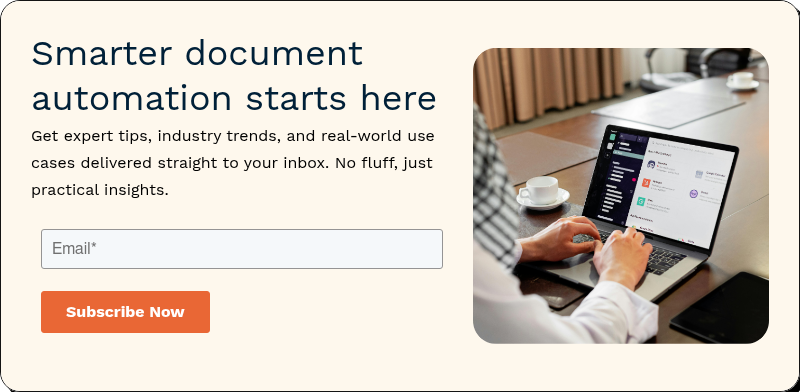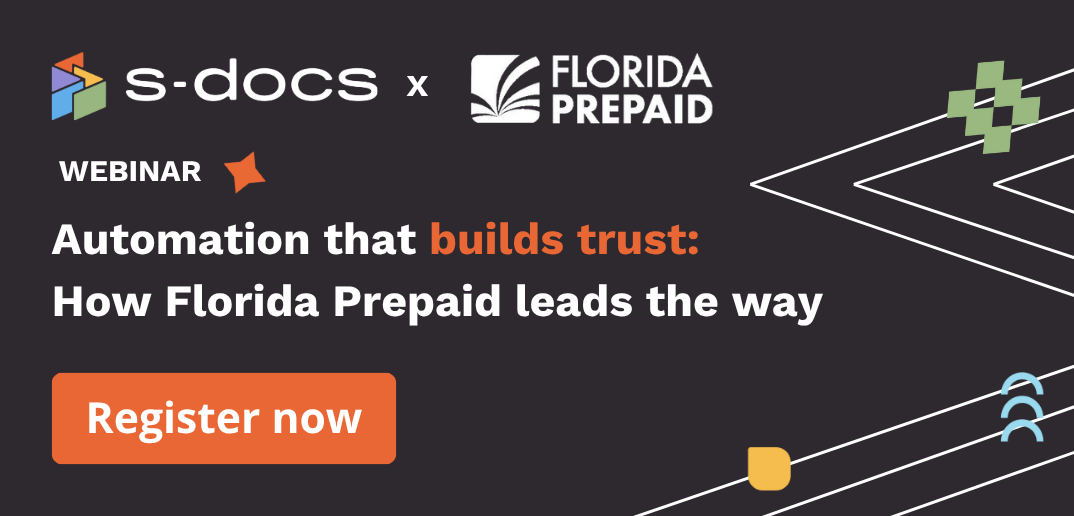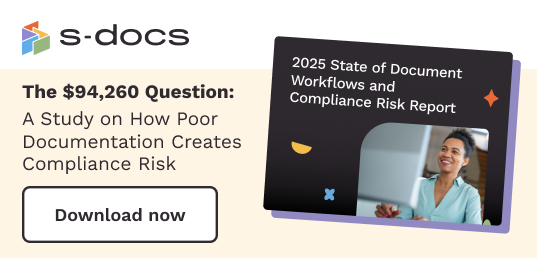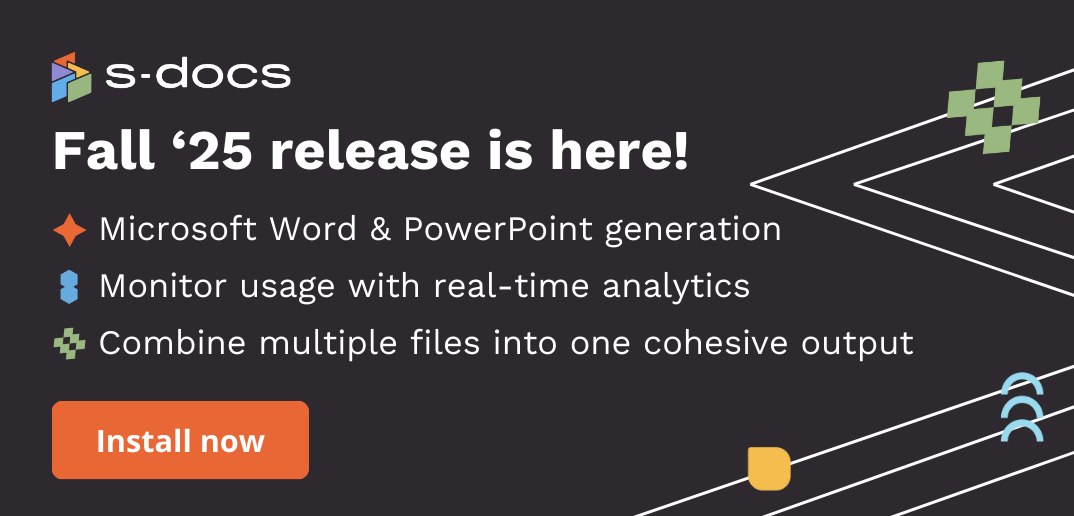Data security, cybersecurity, information security -- whichever term you use, you probably know that safeguarding your organization’s data is much more important than these buzzwords make it sound. Data breaches can cost millions of dollars, disrupt operations, and damage a business’s reputation for years to come.
Though data security is crucial for private organizations, it becomes exponentially more important when it comes to the public sector. Government entities and contractors store a vast amount of highly confidential information, meaning they hold the substantial responsibility of protecting this sensitive data at all costs.
Luckily, government organizations that use Salesforce are already ahead of the cybersecurity game. Salesforce has been a leader in secure customer relationship management for over 20 years, meaning that your data is protected by trustworthy, stringent security measures just by using the platform. However, as a company with over ten years of experience within the Salesforce ecosystem, we know that there are always extra steps that you can take to further protect your confidential information. If you’re part of a government organization, read on for data security best practices for government entities using Salesforce.
If you’re in the US, Use Salesforce Government Cloud
Salesforce Government Cloud was released in 2012 for United States government organizations and government contractors, so if you’re a government entity in the US, this one is a no-brainer. Government cloud maintains a higher standard of security out of the box, limiting the amount of extra data security measures that US government organizations need to take and allowing them peace of mind while protecting their citizens’ data.
The benefits of Salesforce Government Cloud are inumerable. In May 2014, it achieved a FedRAMP Agency Authority to Operate at the moderate impact level, and continuously monitors its security controls and potential areas of technical vulnerability to maintain this certification. It is also compliant with the Department of Defense Impact Level 4, which consists of even stricter information protection requirements. Data is also encrypted both in-transit and at-rest with FIPS 140-2 validated encryption.
In addition, Salesforce Government Cloud uses data centers located exclusively within the continental United States and operated only by screened U.S. citizens. And with three updates a year, you can rest assured that your data is always well-protected by the latest innovative security measures.
You Might Also Like: What Tech Is Trending In Government?
Salesforce Data Security Basics
If you’re a government entity outside of the United States, Salesforce is still an incredibly secure solution. When combined with a few best practices to heighten your data security even more, your organization can count on consistently secured information and focus on what matters -- serving your constituents and innovating for the future.
Password Protection
Data security starts well before any technology comes into play. Creating and maintaining responsible password policies is the first step to improving any organization’s security. It’s usually best to enforce a minimum password length between 8 and 10 characters, as well as a mixture of letters, numbers, and special characters. You should also mandate that passwords be changed frequently -- at least once every 90 days is a good benchmark to start with.
Additionally, enabling Two-factor authentication on top of secure passwords is a way to step up your security considerably while expending minimal extra effort.
Phishing and Malware
Phishing and malware are two common tactics that involve tricking users into providing sensitive information to unknown sources or downloading malicious software. As Salesforce continues to grow, it becomes an increasingly lucrative target for these schemes. These strategies are dangerous for most businesses, but they can be catastrophic for government agencies.
Although they can be tricky to spot, if you receive a suspicious email that claims to be from Salesforce, you should first report it to security@salesforce.com. You can also check trust.salesforce.com for alerts on recent phishing and malware scams, and trust.salesforce.com/en/security/security-advisories for current security advisories. As always, you should educate your users on how to recognize phishing attempts so that they can be dealt with before they become a problem.
Like we mentioned before, two-factor authentication can be an incredibly important tool for security, and it’s a great way to protect your organization from phishing and malware. If malicious parties do succeed in obtaining login credentials from your Salesforce users, two-factor authentication can still prevent them from logging in since it requires more than a username and password.
Another way to safeguard against phishing is to manage external URL redirects from within your org so that users are alerted when clicking links that take them outside of Salesforce.

Use Health Check & Perform Regular Audits
Most editions of Salesforce allow you to use the Health Check feature to ensure that your org is as protected as much as it possibly can be and to identify areas of potential security enhancements.
Performing regular audits is also a great way to continuously assess the strength of your org’s security. Auditing things like field modifications and login history can ensure that no suspicious activity has been taking place within your Salesforce instance.
Use Salesforce Shield
Salesforce Shield is a trio of security solutions valued by industries with high security requirements, so it’s a great option for government organizations looking to improve their data security. The three components of Salesforce Shield are platform encryption, event monitoring, and field audit trail.
Platform encryption encrypts sensitive data at rest, but still allows critical Salesforce functionality to continue. Salesforce administrators can choose what information to encrypt and control encryption keys, including how often they are updated and changed.
Event monitoring tracks every user interaction within Salesforce and makes them available to administrators through APIs. This feature lets you view what your users are doing in Salesforce, what information they are accessing, and when and where they’re accessing it. The transparency that this feature provides can be invaluable for government organizations.
Field audit trail archives field data changes for up to ten years, which can be great for the strict regulatory compliance policies of the public sector. Field audit trail also helps with internal governance.
Always Choose Native Salesforce Apps
Like we mentioned before, government entities that use Salesforce are already ahead of the data security game. This is because Salesforce’s security infrastructure uses some of the most advanced cloud security technology available today. This means that applications that are built on the Salesforce platform share many of these security benefits out of the box.
When evaluating applications for your Salesforce org, look for ones with the native icon, because these apps are built entirely within the Salesforce platform. Non-native applications are hosted on platforms other than Salesforce, meaning that they must transport your data outside of Salesforce for processing, which creates a risk that isn’t present in native applications. This is why native applications are the way to go to ensure the highest level of security.
Take S-Docs, for example. Our document generation and e-signature solution is 100% native to Salesforce. S-Docs allows you to generate, automate, and e-sign mission-critical documents without ever leaving your Salesforce org. The data used to generate these documents doesn’t leave either: everything is processed entirely within the Salesforce cloud. If you already trust Salesforce, you can trust S-Docs.
S-Docs also works seamlessly with Salesforce Government Cloud and is well-equipped to satisfy a multitude of different business requirements that government organizations and contractors have. Over ten years in the Salesforce ecosystem and experience working with some of the biggest government agencies around the globe has enabled us to become a leader in secure document generation and e-signature for Salesforce.
Start Securing Your Data Today
If you’re ready to begin securely simplifying your document creation & e-sign workflow, contact sales@sdocs.com today for a customized demo that will go through the speed and security benefits of using our native solution. But don’t just take our word for it! Visit our government page to see why we’re the trusted partner for some of the world’s biggest government organizations and view the diverse array of use cases that S-Docs can satisfy.






.png)
.png)
.png)